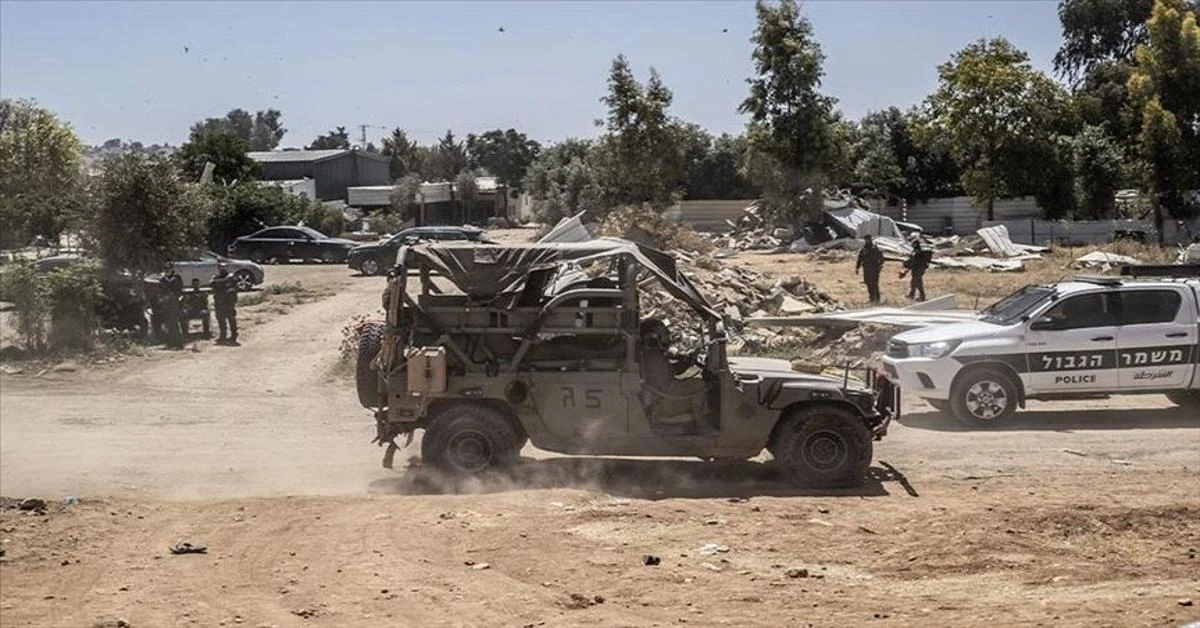Israeli whistleblowers expose extreme abuses at desert detention center

Reports from Sde Teiman describe conditions likened to concentration camps, with whistleblowers exposing severe detainee abuses and medical malpractice in Israel’s Negev desert
Recent revelations by Israeli whistleblowers in a CNN report have brought to light grave allegations of abuse and mistreatment of Palestinian detainees at the Sde Teiman detention facility located in Israel’s Negev desert.
The military base was repurposed as a detention center after the beginning of the ongoing conflicts with Gaza and now stands accused of violating human rights under the guise of security.
The accounts were provided by former employees of the facility who have chosen to speak out at great personal risk and detail a regime of extreme physical and psychological torture. Detainees captured during Israel’s military operations in Gaza endure conditions that one whistleblower described starkly.
“Rows of men in gray tracksuits are sitting on paper-thin mattresses, ringfenced by barbed wire. All appear blindfolded, their heads hanging heavy under the glare of floodlights,” he said. These detainees are forbidden from moving, talking, or even lifting their blindfolds.
One of the more harrowing practices reported involves the systematic silencing of detainees. Guards frequently employ the Arabic command “uskot,” meaning “shut up,” to enforce silence. More disturbingly, whistleblowers allege that guards identify and single out “problematic” detainees for physical punishment, further exacerbating the facility’s already brutal conditions.
The situation in the facility’s field hospital is particularly dire. According to one medic, wounded detainees are strapped to beds, clad only in diapers, and fed through straws. This treatment effectively dehumanizes them, reducing them to a state of utter helplessness.
“They stripped them down of anything that resembles human beings,” the medic explained. He elaborated on the psychological impact of such conditions: “Imagine being unable to move, unable to see what’s happening, and completely naked. That leaves you totally exposed.”
The medical care provided at Sde Teiman has also come under scrutiny. Several whistleblowers report that detainees sustain injuries from being continuously handcuffed, sometimes leading to the need for amputation.
Medical procedures are often carried out by individuals who are not fully qualified, a situation described by one whistleblower: “I was asked to perform minor medical procedures totally outside my expertise, frequently without anesthesia. If they complained about pain, they were given paracetamol.”
In response to these alarming disclosures, the Israel Defense Forces (IDF) issued a statement asserting the propriety of their detainee management.
“The IDF ensures proper conduct towards the detainees in custody. Any allegation of misconduct by IDF soldiers is examined and dealt with accordingly,” the statement read. It further clarified that detainees are handcuffed based on their assessed risk level and health status, and are re-clothed once deemed no longer a security threat.
The revelations have triggered a broader debate on Israel’s adherence to international laws and norms, especially concerning the treatment of detainees.
Human rights groups and legal experts have intensified calls for transparency and accountability regarding the operations of facilities like Sde Teiman.



